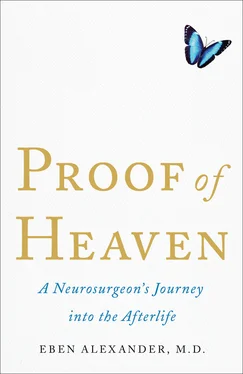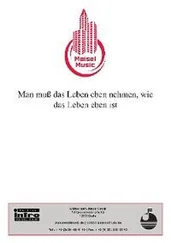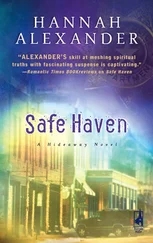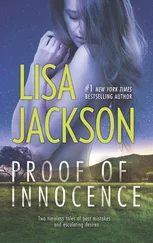After coming back to the States in early 1946, Dad went on to finish his neurosurgical training with his friend and Harvard Medical School classmate, Donald Matson, who had served in the European Theater. They trained at the Peter Bent Brigham and the Children’s Hospitals in Boston (flagship hospitals of Harvard Medical School) under Dr. Franc D. Ingraham, who had been one of the last residents trained by Dr. Harvey Cushing, globally regarded as the father of modern neurosurgery. In the 1950s and 1960s, the entire cadre of “3131C” neurosurgeons (as they were officially classified by the Army Air Force), who had honed their craft on the battlefields of Europe and the Pacific, went on to set the bar for the next half century of neurosurgeons, including those in my own generation.
My parents grew up during the Depression and were hardwired for work. Dad just about always made it home for family dinner at 7 P.M., usually in a suit and tie, but occasionally wearing surgical scrubs. Then he’d return to the hospital, often taking one of us kids along to do our homework in his office, while he made rounds on his patients. For Dad, life and work were essentially synonymous, and he raised us accordingly. He usually made my sisters and me do yard work on Sundays. If we told him we wanted to go to the movies, he’d reply: “If you go to the movies, then someone else has to work.” He was also fiercely competitive. On the squash court, he considered every game a “battle to the death,” and even into his eighties was always in search of fresh opponents, often decades younger.
He was a demanding parent, but also a wonderful one. He treated everyone he met with respect and carried a screwdriver in the pocket of his lab coat to tighten any loose screws he might encounter during his rounds of the hospital. His patients, his fellow physicians, the nurses, and the entire hospital staff loved him. Whether it was operating on patients, helping to advance research, training neurosurgeons (a singular passsion), or editing the journal Surgical Neurology (which he did for a number of years), Dad saw his path in life clearly marked out for him. Even after he finally aged out of the operating room at seventy-one, he continued to keep up with the latest developments in the field. After his death in 2004, his long-time partner Dr. David L. Kelly, Jr., wrote, “Dr. Alexander will always be remembered for his enthusiasm and proficiencies, his perseverance, and attention to detail, his spirit of compassion, honesty, and excellence in all that he did.” No great surprise that I, like so many others, worshipped him.
Very early on, so far back I don’t even remember when it was, Mom and Dad had told me that I was adopted (or “chosen,” as they put it, because, they assured me, they’d known I was their child from the moment they saw me). They were not my biological birth parents, but they loved me dearly, as if I were their own flesh and blood. I grew up knowing that I’d been adopted in April 1954, at the age of four months, and that my biological mother had been sixteen years old—a sophomore in high school—unwed when she gave birth to me in 1953. Her boyfriend, a senior with no immediate prospects for being able to support a child, had agreed to give me up as well, though neither had wanted to. The knowledge of all this came so early that it was simply a part of who I was, as accepted and unquestioned as the jet black color of my hair and the fact that I liked hamburgers and disliked cauliflower. I loved my adoptive parents just as much as I would have if they had been true blood relations, and they clearly felt the same about me.
My older sister, Jean, had also been adopted, but five months after they adopted me, my mother was able to conceive herself. She delivered a baby girl—my sister Betsy—and five years later, Phyllis, our youngest sister, was born. We were full siblings for all intents and purposes. I knew that wherever I had come from, I was their brother and they were my sisters. I grew up in a family that not only loved me but also believed in me and supported my dreams. Including the dream that seized me in high school and never let go till I achieved it: to be a neurosurgeon like my father.
I didn’t think about my adoption during my college and medical school years—at least not on the surface. I did reach out to the Children’s Home Society of North Carolina several times, inquiring whether or not my mother had any interest in reuniting. But North Carolina had some of the nation’s strictest laws to protect the anonymity of adoptees and their birth parents, even if they desperately wanted to reconnect. After my late twenties, I thought about the matter less and less. And once I met Holley and we started our own family, the question drifted ever further away.
Or ever deeper inside.
In 1999, when he was twelve and we were still living in Massachusetts, Eben IV got involved in a family heritage project at the Charles River School where he was a sixth grader. He knew I’d been adopted, and thus that he had direct relatives on the planet whom he didn’t know personally, or even by name. The project sparked something in him—a deep curiosity that he hadn’t, up to that point, known he had.
He asked me if we could seek out my birth parents. I told him that over the years I’d occasionally looked into the matter myself, contacting the Children’s Home Society of North Carolina and asking if they had any news. If my biological mom or dad desired contact, the society would know. But I had never heard anything back.
Not that it bothered me. “It’s perfectly natural in a circumstance like this,” I’d told Eben. “It doesn’t mean my birth mom doesn’t love me, or that she wouldn’t love you if she ever set eyes on you. But she doesn’t want to, most likely because she feels like you and I have our own family and she doesn’t want to get in the way of that.”
Eben wouldn’t let it go, though, so finally I thought I’d humor him and wrote a social worker named Betty at the Children’s Home who’d helped me with my requests before. A few weeks later, on a snowy Friday afternoon in February 2000, Eben IV and I were driving from Boston up to Maine for a weekend of skiing when I remembered I was due to give Betty a call to check on her progress. I called her on my cell phone, and she answered.
“Well, in fact,” she said, “I do have some news. Are you sitting down?”
I was in fact sitting down, so I said as much, omitting that I was also driving my car through a blizzard.
“It turns out, Dr. Alexander, that your birth parents actually got married .”
My heart hammered in my chest, and the road in front of me suddenly turned unreal and far away. Though I’d known that my parents were sweethearts, I’d always assumed that once they’d given me up, their lives had taken separate directions. Instantly a picture appeared in my head. A picture of my birth parents, and of a home that they’d made somewhere. A home I had never known. A home where—I didn’t belong.
Betty interrupted my thoughts. “Dr. Alexander?”
“Yes,” I said slowly, “I’m here.”
“There’s more.”
To Eben’s puzzlement, I pulled the car over to the side of the road and told her to go ahead.
“Your parents had three more children: Two sisters and a brother. I’ve been in touch with the older sister, and she told me your younger sister died two years ago. Your parents are still grieving their loss.”
“So that means…?” I asked after a long pause, still numb, taking it all in without really being able to process any of it.
“I’m sorry, Dr. Alexander, but yes—it means she is refusing your request for contact.”
Eben shifted in the seat behind me, clearly aware that something of importance had just happened but stumped as to what it was.
Читать дальше












